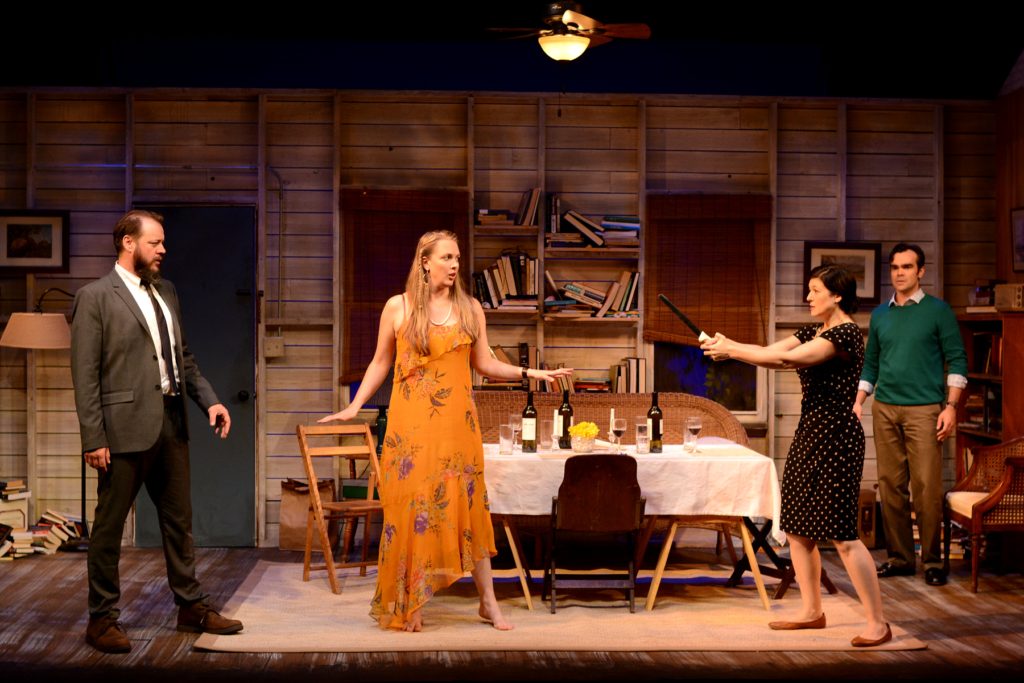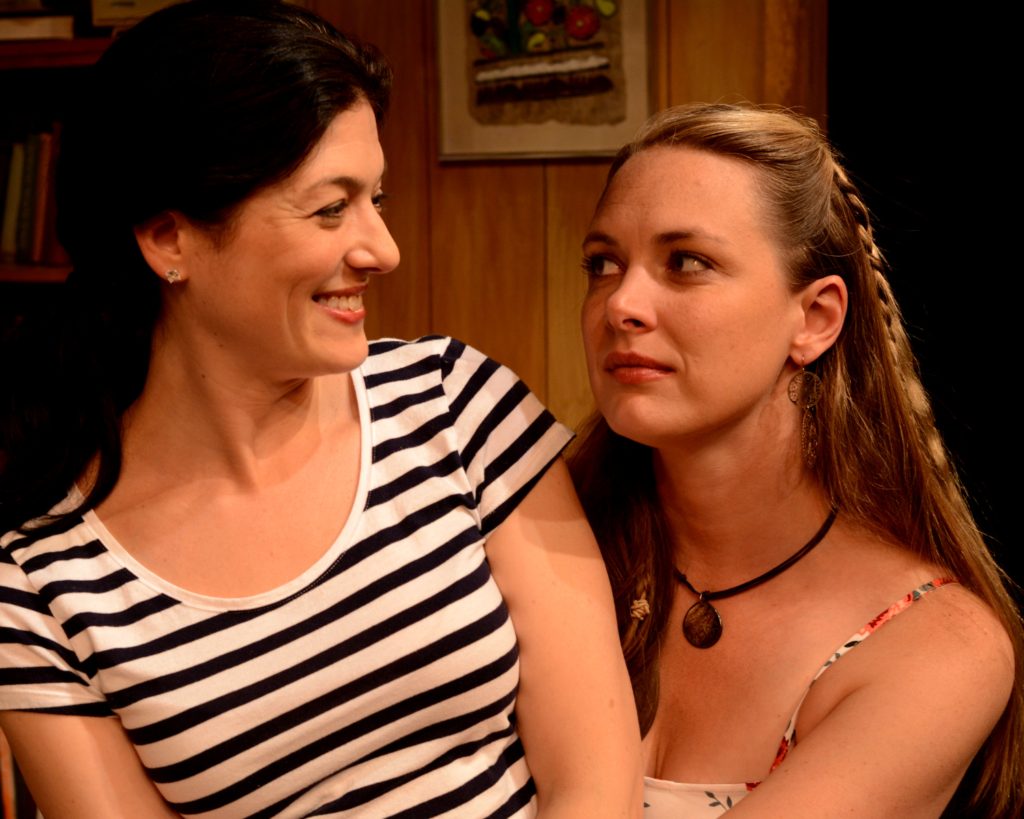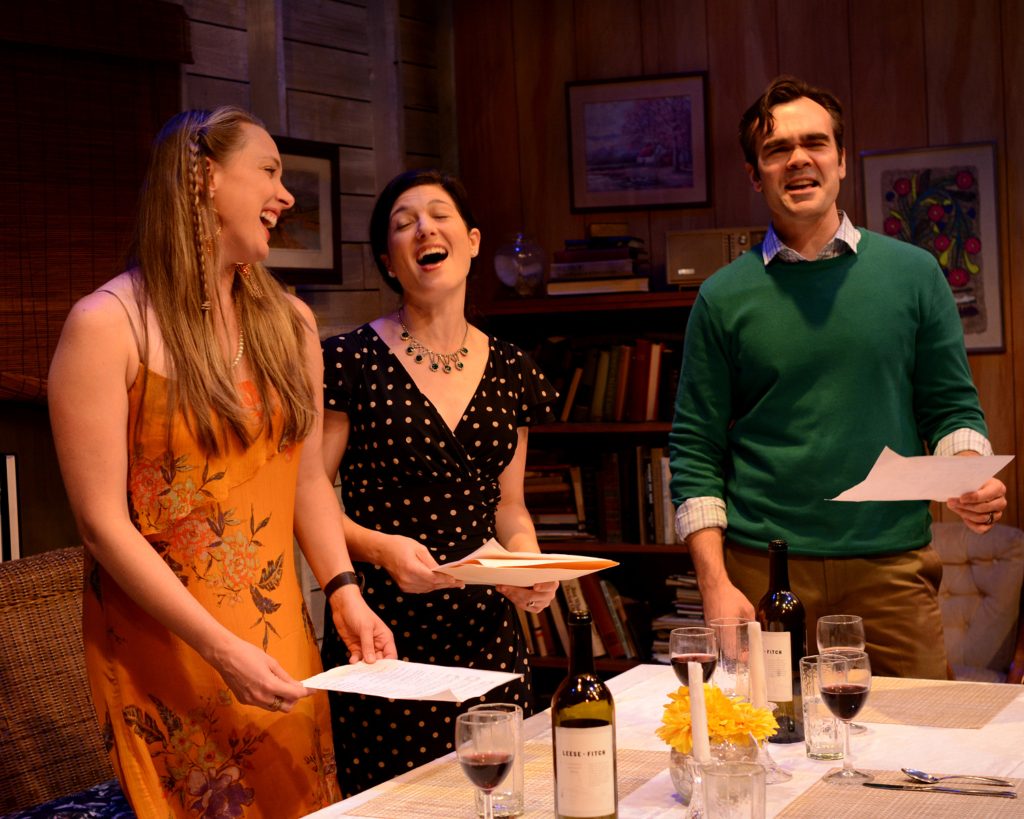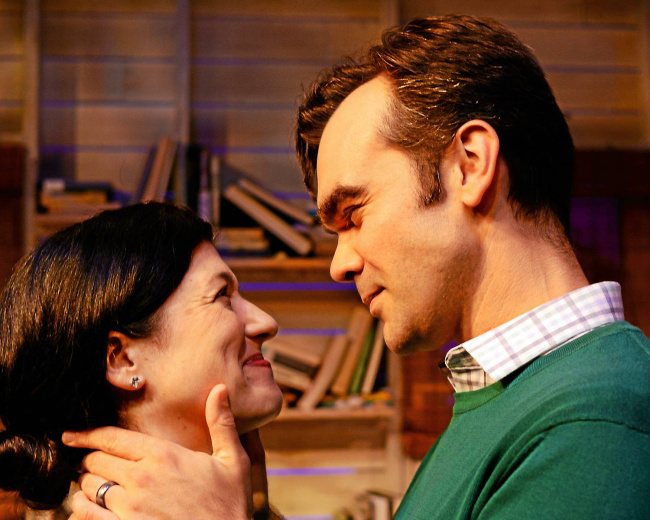It’s such a pleasure to see a play in which language is as important as plot – a play whose dialogue doesn’t simply move the story forward but enriches it. Sister Play, at Chester Theatre Company, is such a gem – an absorbing, what’s-really-going-on narrative powered by John Kolvenbach’s smart, witty script. That, of course, is what Chester specializes in: smart, witty, plays that tickle the imagination.
This one, third in the company’s four-play season, begins as two sisters return for their annual visit to the semi-derelict Cape Cod cabin where their father died, a place haunted by memories and his persistent spirit. The younger of the two, Lilly, is a unrepentant fuckup – “flailing,” she admits, falling serially for “creeps” and fatally “susceptible to gurus,” as her sister acidly puts it. That’s Anna, the elder, alternately harsh and despairing in her self-imposed duty to protect her flaky sib from self-inflicted pitfalls.
Therese Plaehn and Tara Franklin are sisterly opposites in these roles. Plaehn’s blonde, lanky Lilly has a flower-child translucence that’s funny and disarming, but a half-hidden desperation lets us see why her sister worries about her. As Anna, Tara Franklin is dark, compact and edgy, a coiled spring that never quite unwinds.
But these opposites are also complementary, and the performances give extra meaning to Kolvenbach’s title. They are verbally and physically playful with each other, reflecting a lifetime’s intimacy even as they squabble, while also playing on each other’s fears and weaknesses to score hits that scratch and bleed.
James Barry plays Anna’s husband Malcolm, and the fact that he and Franklin are a real-life couple lends an easy intimacy to their onstage relationship. Malcolm is almost an outsider in the sisters’ universe, tossing wry observations (“the only kind I have”) from the sidelines. But in Barry’s sharp-eyed performance, he’s also a stable check to their respective excesses.
Then a real outsider shows up. William Casey is a drifter whose Texas drawl is belied by “a pretentious formality,” as he himself admits. Lilly, has picked him up hitch-hiking, is charmed and fascinated, but Anna is instantly alarmed, sensing a danger greater than her sister’s previous capricious flings. She keeps him at a cold distance, calling him “Mr. Casey” as even Malcolm warms to him.
In Justin Campbell’s nicely underplayed performance, William has a disarming reticence, yes-ma’am polite and gentlemanly even though he’s currently a gentleman of the road, unemployed and rootless – which only adds to his enigma.
The play hinges on this quirky ambiguity. Are we to take William, and Lilly’s fervent attraction, at face value, a sudden magical coupling of two lost souls, or side with Anna’s half-rational, half-panicked fear? Kolvenbach has a gift for laugh-out-loud lines which then turn on themselves as things suddenly become uncomfortable, and Daniel Elihu Kramer’s shrewd direction similarly keeps our sympathies on edge. We’re meant to be off-balance, and the decidedly equivocal, what-now? ending isn’t a disappointment, but the whole point.
I saw the original production of this play two years ago on Cape Cod. It was commissioned by the Harbor Stage Company and written specifically for the troupe’s core quartet. So it was fascinating to see this staging, in which the actors are equally skilled and engaging, but quite different physical types than the original cast and with their own distinct impulses and personalities shaping the performances.
Which is just one more thing that makes live theater so wonderfully unique: words on the page, spare and supple, given form and substance by human bodies and voices, night after night, production after singular production, each time animated anew.
Photos by Rick Teller
If you’d like to be notified of future posts, email StageStruck@crocker.com






